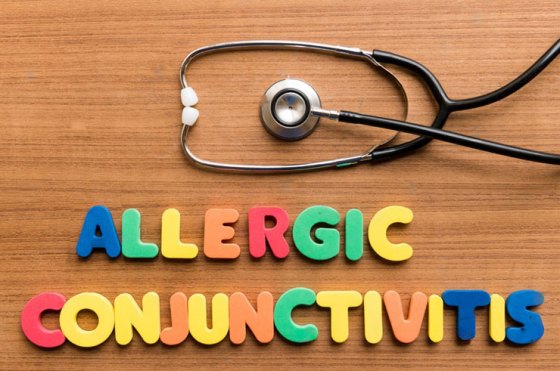
What is Conjunctivitis?

Does your eye feel redder than a tomato? Does your eye feel heavier than usual? You might be experiencing the symptoms of ‘conjunctivitis’.
Often called “pink eye”, conjunctivitis is one of the most common and painful eye diseases that occur in children and adults. Simply put, conjunctivitis is an inflammation of the moist tissue lining your eyelids and the ‘white part of your eyeball’.
According to our best eye doctor in Dubai, the main causes are viruses, bacteria, and allergens. Irritants such as shampoo, dirt, clouds of smoke, and chlorine from the pool also prove to be harmful as they can trigger allergic eye diseases. Allergic conjunctivitis is not contagious. However, bacterial and viral conjunctivitis can easily spread through direct contact with infected individuals or contaminated surfaces. This is especially concerning in school settings; proper hygiene practices are crucial in preventing the spread of infectious conjunctivitis.
What really matters is to know whether your conjunctivitis is caused by allergies or infection, since both conditions demand different treatments.
Look for these symptoms of allergic conjunctivitis:
- Continuous flow of tears
- Blood red appearance on the whites of your eye & inner eyelids
- Itchiness in your eyes and nose
- Periodic sneezing
- Swelling of your eyelids
One of the noticeable things is that in allergic conjunctivitis, these symptoms are usually present in both eyes, though not equally. If you start noticing any of these symptoms or if they continue, make sure to book an appointment right away with our team of expert ophthalmologists at HealthHub Clinics.
How do you treat Allergic Conjunctivitis?
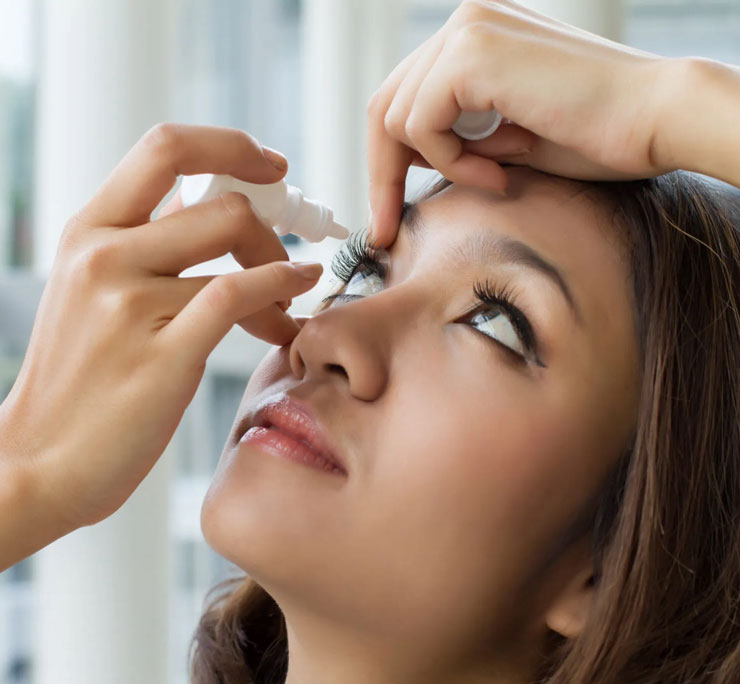
If you use antihistamines, it can help to cure your allergy-associated conjunctivitis or pink eyes and help it disappear altogether. The first line of allergic pink eye treatment is removal of allergens, and would include things like wearing your hat or protective clothing outside and washing your face frequently during unstable weather.
Here are a few allergic eye remedies you can keep in mind :
- Make sure to remove your contact lenses if you are wearing them.
- Place cold compresses or an ice pack over your eyes.
- Try over the counter eyedrops that may help cool your eye burns while offering relief to your eyes. Just make sure to check with our best ophthalmologist in Dubai on the different types of eyedrops that are right for you as some may prove counter reactive. Avoid using the same bottle of eyedrops in the other eye if it isn’t affected.
The best defense against allergic pink eye is a good offense: Try to avoid substances that trigger your allergies. Our eye doctors can test your eyes to determine what your specific triggers might be.
Other tips to keep in mind when treating allergic conjunctivitis:
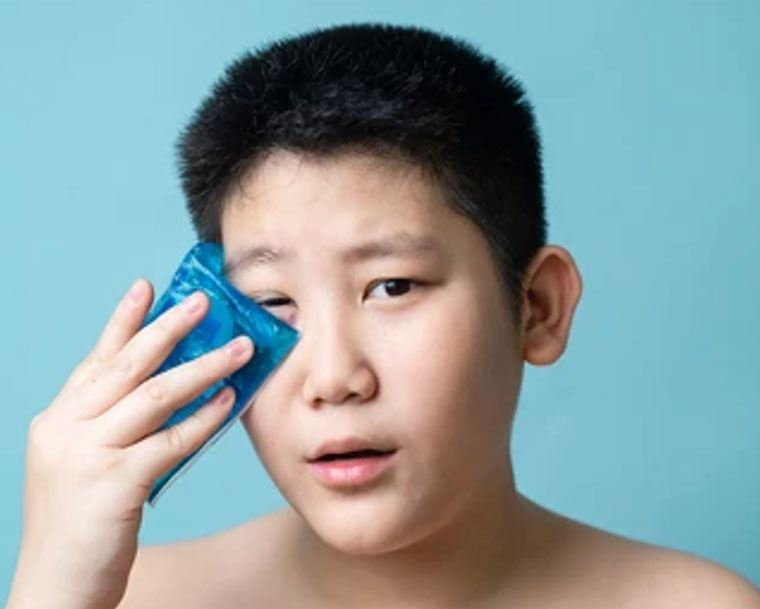
- Avoid touching or running your affected eyes.
- Make sure to wash your hands often with soap and warm water.
- The objects you interact with daily could carry infections in places you would least expect. Make sure to wash your bed linens, pillowcases, and towels in hot water and detergent to reduce allergens.
- Try and minimize the use of eye-makeup and if you do, make sure you do not share your eyecare kit with anyone else.
- Avoid using another person’s contact lens.
- As a healthy option, remember to use glasses wherever and whenever possible instead of contact lenses to reduce irritation.
- Always wash your hands before applying eyedrops or ointment to your eye or your child’s eye.
- Avoid using ophthalmic drops for allergic conjunctivitis that were used earlier in an infected eye.
Allergic Conjunctivitis in the Gulf:
Our top eye specialist in the UAE, suggests that those familiar with allergies understand the classic symptoms: itchy, red, and watery eyes. However, managing allergic conjunctivitis within the Gulf region presents a distinct set of environmental and lifestyle factors that can intensify this condition.
The impact of dust and sand:

The arid climate, coupled with periodic dust storms, always poses a major challenge. Dust and sand particles act as direct irritants, and can also transport significant amounts of pollen and other allergens.
Protective eyewear becomes essential, particularly during periods of increased airborne diseases.
Indoor considerations: air conditioning and fragrances:
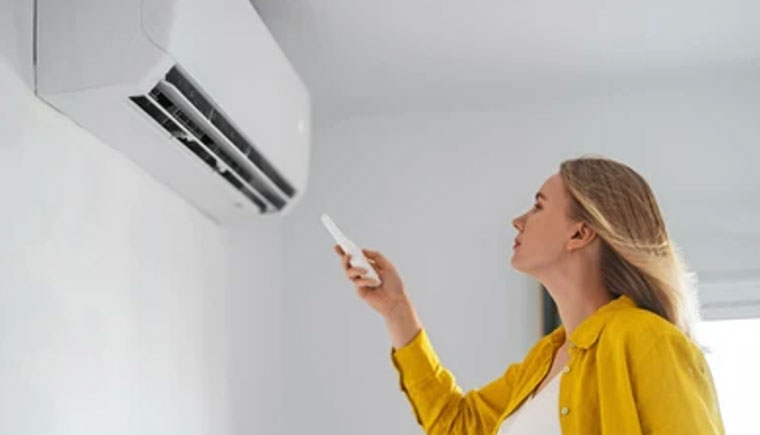
While air conditioning provides a welcome respite from the heat, its dehumidifying effect can worsen eye dryness. Humidifiers and diligent maintenance of AC systems are strongly recommended.
Additionally, the prevalent use of potent fragrances in perfumes, detergents, and incense should be carefully considered by those prone to allergic sensitivities.
The importance of reducing eye strain:

Extended screen time is a common factor in modern life, and can intensify the discomfort of allergic conjunctivitis.
Regular breaks from screen-based activities like looking at your mobile phone or hours of late night binging in front of Netflix are crucial for eye health and reducing associated irritation.
When selfcare measures are just not enough
Why you need the best eye doctor:
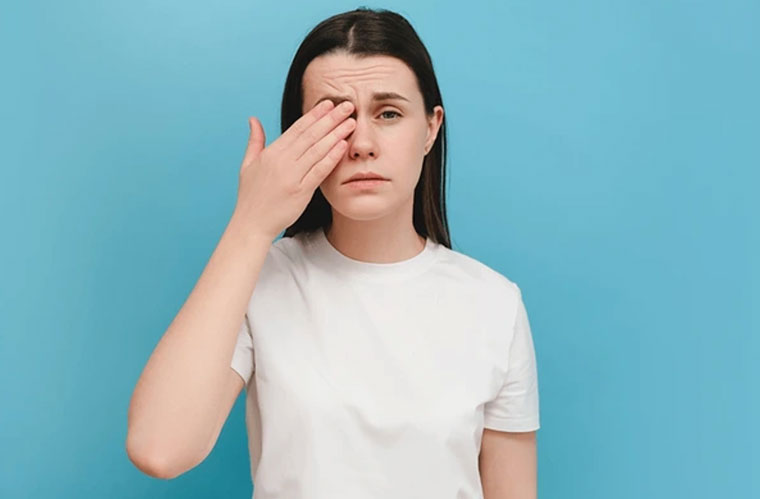
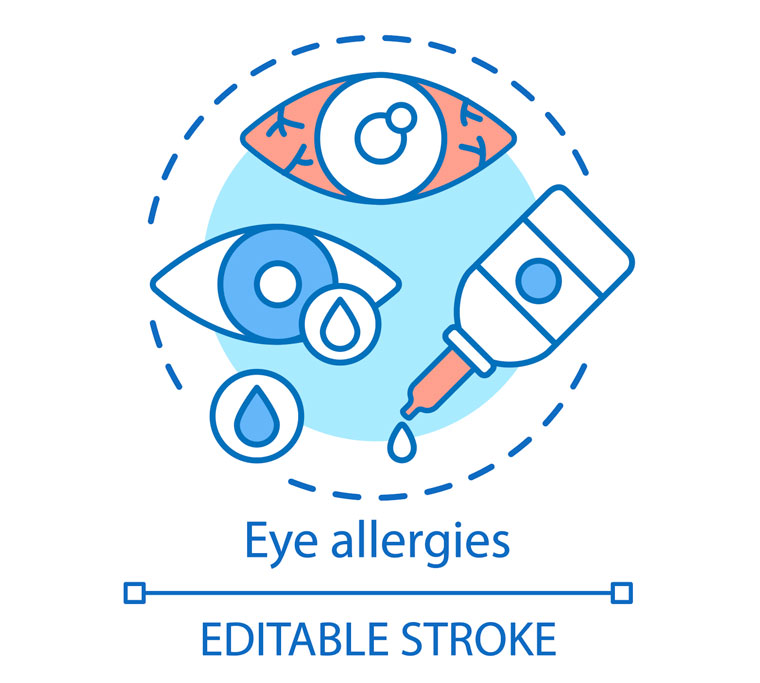
- Unrelenting symptoms:If your eyes remain intensely red, itchy, or produce excessive discharge despite consistent self-care, there might be a more complex issue at play. This could mean a stronger allergic reaction or even an infection.
- Changes in vision:Any blurry vision, sensitivity to light, the appearance of floaters or flashes of light are red flags. These symptoms signal potentially serious eye conditions that require immediate medical attention.
- Other atypical concerns: Swelling around the eyes, eye pain, or signs that the condition spreads beyond the eyes might indicate complications or a different underlying problem.
- Severe allergies: They might prescribe stronger medications, like prescription-strength antihistamines or even topical steroids for short-term relief in extreme cases.
- Bacterial or viral infections: Sometimes, an infection might complicate an existing allergic reaction. Your doctor will be able to diagnose this and offer appropriate antibiotics or antiviral treatments.
- Other eye conditions: Conditions like dry eye syndrome, blepharitis (eyelid inflammation), or even less common issues like iritis (inflammation of the iris) can mimic allergy symptoms. An accurate diagnosis is therefore key for the right treatment.
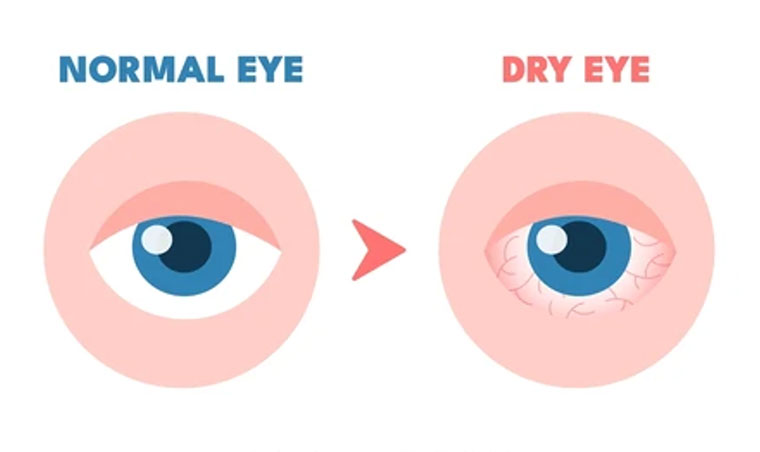
Seeking professional evaluation for severe or persistent symptoms isn’t just about comfort; it’s about protecting your eye health. Untreated infections or underlying conditions can lead to complications that could even affect your vision long-term.
Navigating allergic conjunctivitis in the Gulf through allergic conjunctivitis management includes:
- Proactive awareness. Identifying personal triggers, monitoring pollen forecasts, and adopting protective measures are key to minimizing flare-ups.
- Maintaining hygiene. Regular cleansing of the face and eyelids, along with frequent changes of pillowcases, helps you manage dust mites and other household allergens.
- Prioritizing general well-being. Adequate hydration, sufficient sleep, and effective stress management can positively influence the body’s response to allergens.


Living with allergic conjunctivitis in the Gulf region requires attentive management. By understanding these unique challenges and implementing appropriate strategies, you can significantly lessen the impact of this condition on your quality of life.
Book an appointment right away with our team of expert ophthalmologists or talk to our team of expert eye doctors at HealthHub Clinics on 800 2344.








